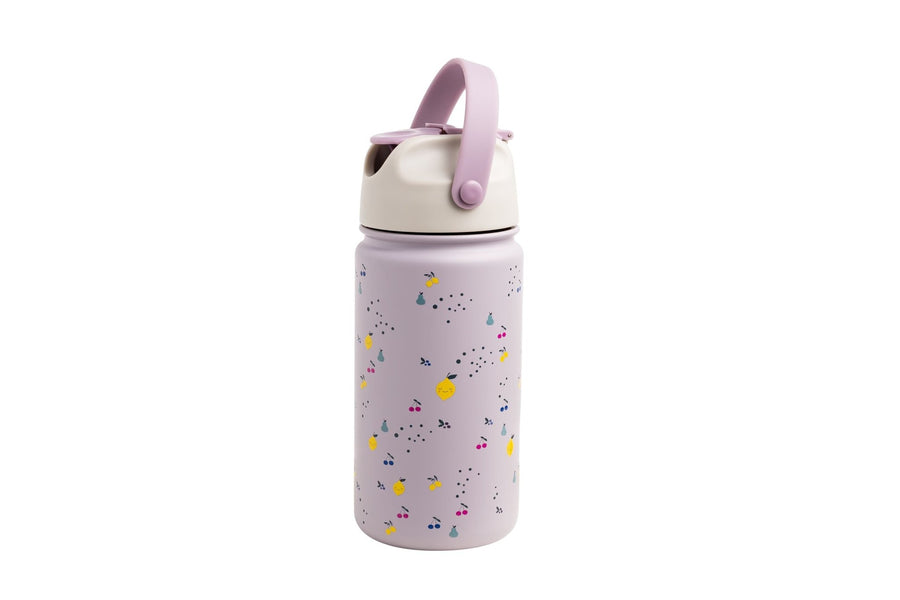Generally
Silicone is a polymer composed mainly of silicon. Silicone is an inert substance and stable at high temperatures, waterproof, non-porous, non-sticky and shows no toxicity. It is tasteless and odorless and very mild when in contact with skin. It is also very easy to clean. It is flexible and durable, making it the perfect material for many baby products!
When it comes to the environment, silicone is very durable and more ocean-friendly than plastic. Silicone, which is made from silica found in sand, lasts much longer in the environment and when used in products than plastic. By using silicone, families can drastically reduce their plastic consumption.
Yes, yes and three times yes! Our silicone is free of BPA, phthalates, cadmium and lead. We also make sure that it passes tests in independent laboratories that certify this.
They are made in both Germany and China. Our lovingly handcrafted products are made in Trier. The teething rings and harnesses are made in China. We ensure that our suppliers offer the highest level of quality and ethics.
Yes. The safety and well-being of your baby is our top priority. That is why our products undergo rigorous safety tests in independent laboratories to ensure that they comply with the strict regulations of the European Union and Germany in particular. Our tableware is made from certified silicone according to the LFGB standard (the German standard, which is the strictest in the EU). We also comply with the EN14372 standard, which certifies that our products, packaging, safety instructions and materials meet all requirements.
The same applies to our teething rings and pacifier holders and their respective standards EN12586 and EN71.
Lara, a Spanish mother living in Germany, has a great passion for design and whose goal is to offer practical products for everyday family life.
They are designed in Germany, specifically in the city of Trier. That's where our brand new studio is located.
According to European legislation, in particular the GPSR Act (Act on the EU Product Safety Regulation), we provide you with product-specific safety instructions and batch information to ensure your safety and protection. These safety instructions can be found under the section WARNINGS at the end of the product description and on the packaging of our products.
If you have any questions or concerns, please contact us at contact@thecottoncloud.com You can also find our physical address in the imprint.
Thank you for your trust in us!
Pacifier
Yes. Our pacifier chains have passed independent laboratory tests confirming that they comply with the European standard EN12586.
It is best to wash them with a damp cloth or mild soap and water.
We recommend replacing them every 4-6 months to avoid wear and tear and ensure the functionality of the bracket.
Bite rings
Yes. Our teething rings have passed independent laboratory tests confirming that they comply with the European standard EN71.
Yes. The silicone we use is free of BPA, phthalates, cadmium and lead. Your baby can bite it as much as he wants without being afraid of anything!
With water and mild soap.
The teething rings are very durable. But as stated in the safety instructions, please check them before each use!
Silicone
Yes. Our dishes have passed independent tests in laboratories confirming that they comply with European regulations. By the way, we use silicone that meets the German standard (the strictest in the EU).
Yes that's it.
Yes, silicone is a material that can withstand both high and low temperatures (-40 to 230 degrees Celsius). As stated in our safety instructions (please keep!), after heating the food, check the temperature before offering it to your baby. If heating it in the microwave, stir it from the inside out, as food does not heat evenly in the microwave and your baby could get burned.
Almost all. Suction cups like smooth, non-porous surfaces. They also stick to wood, except rough and untreated wood. If you are unsure, please email us at contact@thecottoncloud.com. We are happy to help you!
Absolutely not! It's completely normal. Some naturally occurring colorants in vegetables can discolor them (e.g. tomato sauce). This discoloration is particularly visible on light-colored dishes. It's best to wash them immediately after use. If you forget, it's not a problem! You can leave them in the sun for a day or wash them several times in the dishwasher.
It may happen that a slight soapy smell is produced when washing the silicone in the dishwasher. Rest assured, it is not harmful. If you still want to remove the smell, mix a dash of lemon and water with baking soda and let it work.
Another option is to place the silicone dishes in the oven at 100 degrees Celsius for one hour.




